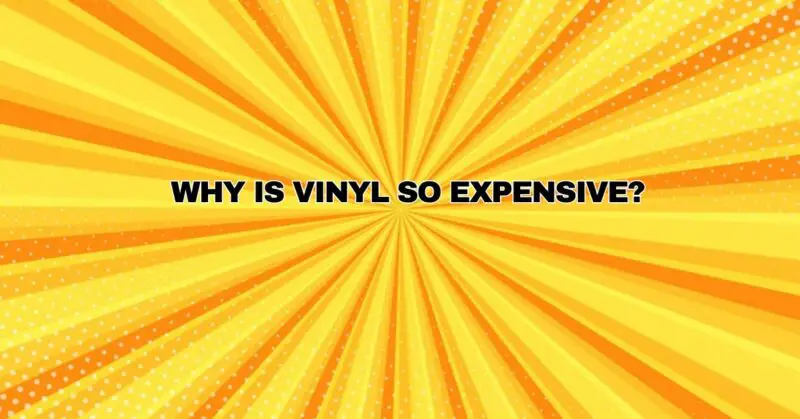In recent years, vinyl records have experienced a remarkable resurgence in popularity, captivating audiophiles, collectors, and music enthusiasts alike. While the tactile appeal and nostalgic charm of vinyl records play a significant role in their revival, one aspect often raises eyebrows: their price tag. Vinyl records are considerably more expensive than digital music or even other physical formats like CDs. This article will delve into the factors that contribute to the high cost of vinyl and explore why it remains a premium product in the music industry.
1. Production Costs
The vinyl record manufacturing process is labor-intensive and requires specialized equipment. Here’s a breakdown of the production costs:
- Materials: Vinyl records are made from polyvinyl chloride (PVC), and the quality of the vinyl used can significantly affect the sound quality. High-quality vinyl is more expensive.
- Pressing Plants: The machinery used to create vinyl records is often decades old and requires skilled operators. Maintenance and upkeep of these machines are costly.
- Manual Labor: Each record is physically inspected for defects and must be handled carefully throughout the production process to avoid imperfections.
- Artwork and Packaging: Vinyl records often come with elaborate album artwork, gatefold sleeves, and other collectible packaging elements that add to production costs.
- Limited Production Capacity
The resurgence of vinyl has led to a surge in demand, but there are a limited number of vinyl pressing plants worldwide. This limited capacity can result in longer production times and higher costs, as record labels and artists compete for access to pressing facilities.
3. Specialized Equipment
To play vinyl records, you need a turntable and a phono preamp, both of which can be expensive. Audiophiles often invest in high-end turntables and cartridges to maximize sound quality, further adding to the overall cost of enjoying vinyl.
4. Collector’s Appeal
Vinyl records have transcended their function as mere audio carriers to become collectible items. Limited edition releases, colored vinyl, and exclusive pressings cater to collectors, and these editions are often priced at a premium due to their scarcity and appeal to collectors.
5. Resurgence and Niche Market
The revival of vinyl has resulted in a niche market where demand exceeds supply. This dynamic allows sellers to charge higher prices, especially for rare or sought-after records.
6. Artistic Value and Experience
Vinyl records offer a tactile and immersive listening experience that digital formats can’t replicate. Many music enthusiasts are willing to pay extra for this unique experience and the tangible connection to their favorite artists.
7. Distribution Costs
Shipping vinyl records requires careful handling to prevent damage during transit, which adds to distribution costs. Additionally, vinyl records are heavier and bulkier than CDs or digital files, increasing shipping expenses.
8. Licensing Fees and Royalties
Artists and record labels must pay licensing fees and royalties to copyright holders, further impacting the overall cost of producing and selling vinyl records.
9. Market Forces and Inflation
Like any other product, the price of vinyl records is influenced by market forces and inflation. Increased demand and limited supply can result in price increases over time.
10. Audiophile Quality
Some vinyl records are produced with an emphasis on audiophile-grade sound quality. These records may be mastered and pressed using specialized techniques and materials, driving up their cost.
In conclusion, vinyl records are expensive due to a combination of factors, including the labor-intensive production process, limited production capacity, specialized equipment, collector’s appeal, and the unique artistic and tactile experience they offer. While vinyl records may not be the most economical way to enjoy music, they continue to hold a special place in the hearts of music lovers and collectors who value the rich sound and nostalgia that vinyl provides. The allure of vinyl extends far beyond its price, making it a beloved format that transcends its cost.


